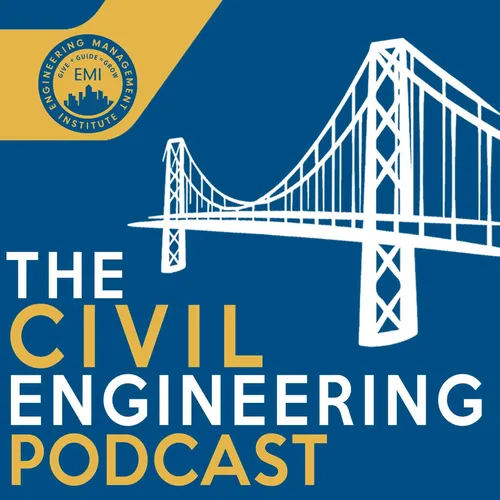How to Resolve Conflict In Civil Engineering Projects Through Mediation – Ep 026
- Author
- Anthony Fasano, PE, AEC PM, F. ASCE and James Taylor, JR., P.E.
- Published
- Wed 02 Mar 2016
- Episode Link
- https://engineeringmanagementinstitute.org/tcep-026-how-to-resolve-conflict-in-civil-engineering-projects-through-mediation/
In episode 026 of The Civil Engineering Podcast, Chris Knutson, PE interviews a successful attorney and mediator, Ken Strongman on the basics of mediation and dives in on a couple of items associated with preparation for mediation and what to expect during the mediation process as an engineer.
Here are some of the questions asked in this episode:
What is mediation
How many parties can participate in mediation
What does the environment look like in a mediation
Who chooses the mediator
What are the qualities of a good mediator
Quotes to think about:
Here are some key points discussed in this episode about How to Resolve Conflict In Civil Engineering Projects Through Mediation:
Mediation is the process of resolving conflicts.
Almost all professional service contracts have clauses for mediation
Mediation – you come together to craft the solution to the problem with the help of a mediator (may take 1-3 months)
Litigation – you go to the court and have a judge or jury solve your case (based on the court’s time schedule usually takes 5-6 years to come to resolution)
Arbitration – it’s a private judging with arbitrators making the final decision and there’s no appeal (you have control over the time schedule)
Four major steps for engineers in the preparation of mediation:
Prepare yourself, your expectations, your realities, your intent, know what you want to communicate, know what your goals needs and interests are in a solution
Do a risk benefit analysis of where you’re at in the process
Understand where the best and worst alternatives to negotiate a settlement would be
Develop some settlement scenarios: what can you live with, think outside the box
Recognize that the other side has interests, goals and needs as well
Prepare your attorney, define your issues with them, prepare a decision tree, find out how the attorney wants to represent and showcase you
Prepare the opposition – their attorney, their adjusters, their decision makers
Provide the decision makers all the information of what is really going on, and send copies of the mediation brief to other parties
Prepare the mediator – educate the mediator
Consider site visits and other pre-session preparations
Qualities of a good mediator:
Able to build trust and confide in quickly
Excellent interpersonal skills
Patience and sense of humor
Creativity in solving problems
Able to think outside of the box
Willing to do everything that he/she can to assist a settlement
Almost all disputes are initially communication issues, but mediation can help get the communication going again and help to keep your project back on track.
About Ken Strongman:
Ken Strongman is an attorney with over 14 years of experience and a growing national reputation as an attorney, mediator, and mediation trainer, who has successfully conducted more than a thousand mediations.
His major practice areas include business, securities, construction defects, real estate, insurance, technology/IT, intellectual property, employment, environment, energy, and trusts & estates. He is also a Judge Pro Tem. His degrees in Urban & Regional Planning (U.C. Davis) and Business Administration & Information Systems (Golden Gate Univ.) provide a solid basis for accelerated resolution of legal issues in these subject matter areas. He is also serves as a Mediator and Arbitrator for the Financial Industry Regulatory Authority.
Learn more about Ken Strongman
Sources/References:
